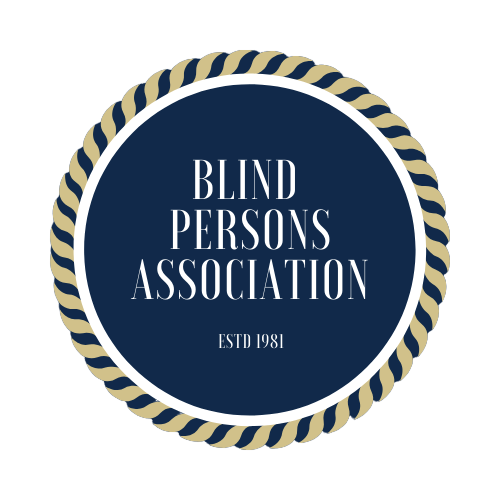- +91-95604-34635
- [email protected]
- Flat # 586, Sector 13 - A, Dwarka, New Delhi - 75
Embracing the Black Dog- Mental Health Support for the Blind
The Black dog was the term coined by Roman poet Horace to symbolize negative feelings one may have about something in real life and popularized by Winston Churchill to describe his own depression. Shadow of a black dog provides a figure for a disorder that's lurking within the background. Similar to a true dog it must be embraced, understood, schooled new tricks, and ultimately dropped at the heel.
Mental health problems are the most misunderstood conditions of our time. Not only they are feared by the societies, but the stigma surrounding it has also led to a lack of knowledge and understanding about these issues.
If these are the misunderstanding and stigmas surrounded for a regular person, According to WHO "with 90% of visually impaired people living in low and middle income countries" and adding how high the cost of mental health treatments is, making the preventive care education, curative services, and quality rehabilitation not universally available and also Published by The Indian Express, "In India there were 7.2 million blind people in 1990, which rose to 8.8 million in 2015, making the country the home of almost a quarter of the 36 million blind people". Imagine the hardships the blind go through to get the help and support in our country.
Many individuals have a misconception that the blind might not experience any mental health concerns as they can't see what's happening around them however, the truth is that they experience more nightmares than sighted people. "This event could be a result of mental impressions or interpretations of a distressing situation like individuals have always said to them, you can't. So, they have it implanted and then the others have been losing their vision or have lost vision later on in life. And so they've had tons of life experiences and all of a sudden to handle the actual fact that they're blind". - Inside the incredible school where blind people learn to rock climb, cook, and live totally independently
Because of these blind individuals typically, report a lot of anxiety in a standard of living than others. "They realize it difficult to avoid stressors, and thence their nightmares are closely tied to reality - falling into a ditch, getting run over by a car, running into a tree or getting stalked". Some even experience depression, the world health organization characterizes depression as one of the most disabling disorders in the world- 13 Things You May Not Know About Blind People
Nevertheless, with the correct action, knowledge and lifestyle changes it can be managed and treated. As caregiver compassion, empathy and understanding are important for taking care of a person who is going through stress, anxiety or depression. Sometimes, even love and care can turn harmful and counterproductive. Professional help is often what's needed. Finding the right doctor can make all the difference to a healthy recovery. It's important to bear in mind that the best thing you can give them is your patience and acceptance of the situation by embracing it.
The most important things blind students learn isn't a trick or an adaption: its confidence. - Colorado Center for the Blind (CCB)
Psychologists say that success in life, education, and jobs of visually impaired individuals or for any individual are directly related to the expectations that individuals around have of them, and also the degree of positive attitudes they encounter. "The more capable and able one believes they are, a lot of they're going to shine. Self-esteem, self-belief, and self-image are partially formed through social interactions, and it is important that individuals encounter empowering experiences. One should try to be that experience!" - 13 Things You May Not Know About Blind People
As one allows this understanding to settle, simply bear in mind that visual impairment isn't defect or a stigma. It is a characteristic, just as sight is that should be embraced and supported, and Helen Keller's words capture this truth beautifully: "I can see, and that is why I can be happy, in what you call the dark, but which to me is golden. I can see a God-made world, not a manmade world."



